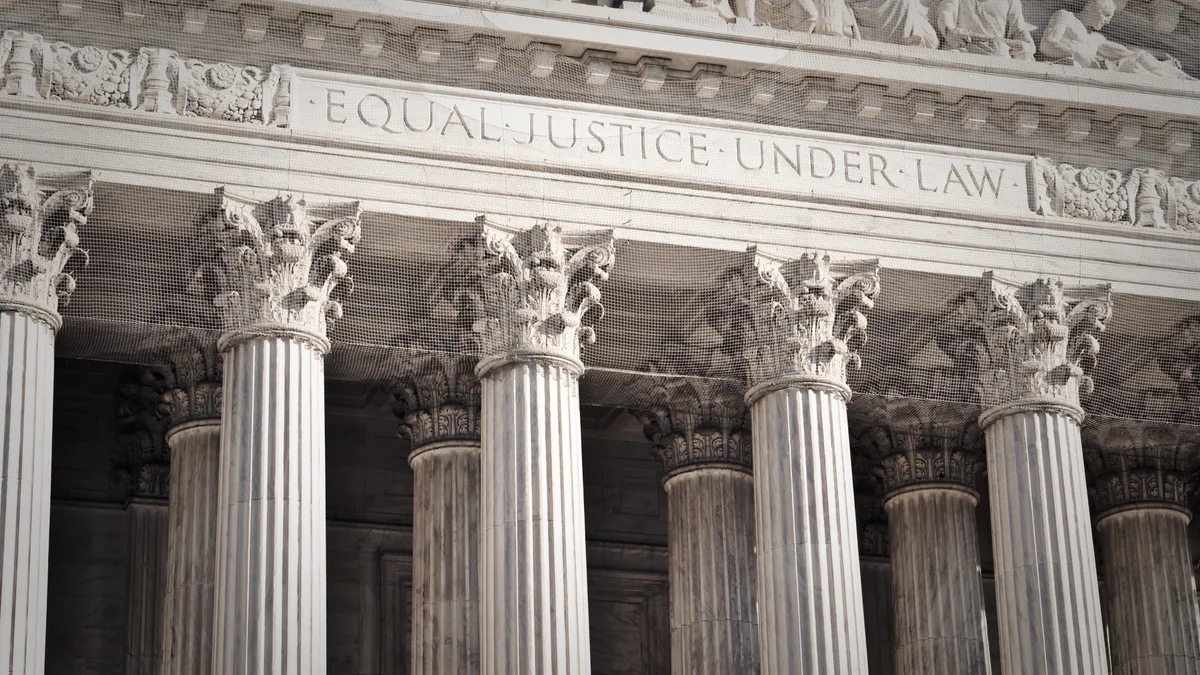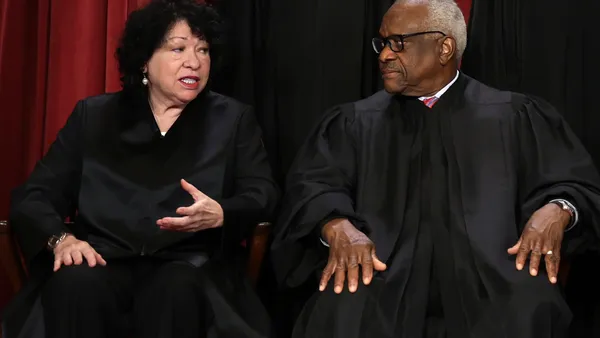Dive Brief:
-
After a rare unanimous U.S. Supreme Court ruling, an Iowa trucking company Thursday got a reprieve in recovering $4.5 million in attorney’s fees from the Equal Employment Opportunity Commission (EEOC), according to media reports. The nation's top court vacated a lower court’s decision to toss the attorney’s fees, which the EEOC had been ordered to pay CRST Van Expedited Inc., the defendant.
-
The decision deals with class-action litigation the EEOC brought against CRST on behalf of female employees who claimed to have been sexually harassed or sexually assaulted at work. A lower district court dismissed the case, saying EEOC had inadequately investigated or attempted to reconcile its claims. It later awarded $4.5 million in attorney’s fees to CRST as the “prevailing party.”
-
The 8th Circuit Court of Appeals overturned that decision, saying defendants with discrimination claims can only be a “prevailing party” if they win a case on the merits. That had not happened, because the district court dismissed the case before it could be won on the merits. The Supreme Court sent the case back to the 8th Circuit Court of Appeals.
Dive Insight:
Miriam Nemetz, a partner in Mayer Brown’s Supreme Court and Appellate practice in Washington, D.C., said the decision will give the EEOC greater incentives to "take seriously its obligation to seek conciliation before filing suit," particularly in light of the Supreme Court’s decision last term in Mach Mining v. EEOC.
With regard to whether the Court is sending a message to the EEOC, Barnes & Thornburg partner Tina Syring said the Court really focused on whether the trigger for awarding attorneys’ fees to a Title VII defendant required a merits-based disposition.
"The decision makes clear that it does not," she explained, adding that once Title VII claims are dismissed – irrespective of whether it was for merits-based or non-merits-based reasons – the court solely must decide if it should award fees because the plaintiff’s claim was "frivolous, unreasonable, or groundless" or if "the plaintiff continued to litigate after it clearly became so."













